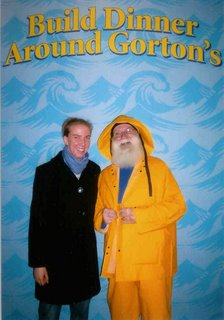Urbania in a Day

Antonello and I haven't had a lot of time lately to travel, so on Sunday, when the day was absolutely beautiful and the sun was warm and shining, we decided to take advantage of an afternoon off, and we quickly headed out the door, picnic lunch in hand, and got in the car for Urbania.
I had heard of Urbania before. Last year, before a daytrip down to the bruzzo town of Castelli to buy ceramics for a friend's wedding gift, I had researched the history of ceramic craft in Italy quite thoroughly, searching especially for something in our region of Le Marche. I didn't come up with much--Le Marche isn't that rich in ceramics--but I did come across the workshops and ceramic history in Urbania. We decided on visiting Castelli instead, on the advice of a friend, and we were not disappointed. But since then, I've had it in my mind to discover the city one day. Sunday was our chance.
Urbania is a tiny city--a village, I guess--on the bend of the Metauro River in northern Le Marche. It is just a short distance from the much more famous city of Urbino, and Urbania's history actually goes hand in hand with Urbino's. Urbania was also founded by the Montefeltro family, known especially for its Duke--Federico. Federico is that famous Duke who gave Urbino the Renaissance makover that it still sports today, and turned Urbino into a sort of artistic mecca during his time. His face is recognizable from this painting by Piero della Francesca, which now finds itself situated in Florence's Uffizi, but is really the pride of Urbino. Urbania, who also has its own Ducal Palace and ties to the Montefeltro family, tends to remain under the shadow of its big brother Urbino, and finding the city is a challenge, but worthwhile nonetheless.
We arrived in Urbania around 4 pm, but with that night's time change, we knew the sun wouldn't set for a good three hours. The city, though small, seemed to have its piazzas and parks filled with locals, setting out on their Sunday afternoon walks, chatting on the steps of the fountain. Who knew if they did this every Sunday, but I imagined that this warm day and the sunshine overhead was a welcoming start to spring. Fresh out of hibernation, the city was alive again.
The next two and a half hours were spent peeking into courtyards, strolling under porticoes, crossing over bridges to stare down at the green green river, and visiting the Diocesan museum, housed in Urbania's little architectural gem: the Ducal Palace. The museum itself was kind of sad--it was in the middle of being re-organized, and it left very few paintings on display--and those were not especially exciting. I was more intrigued by the building itself: fancy-cut terra cotta tiles, much like those found in Urbino's Ducal palace paved each room, and built-in benches flanked the windows, perfect for people-watching. Finally, though, we found ourselves outside on a large, round balcony, where the view of the city greeted us in sunny day fashion, the palace's bricks gleaming golden and the Metauro river flowing below us. We snapped away photos--some of each other, some of the view--and basked in the warmth of this new spring day.

The one thing, however, that we didn't do in Urbania was see the ceramics. Despite being a self-proclaimed tourist stop for people searching out local crafts, Urbania closes its doors on Sundays. All of the little stores were closed, and we could only window shop. Stopping in the tourist office, we asked if any stores were open today.
"No, not on Sunday." the woman said, handing us pamphlets of other activities in the city.
"What about on the first Sunday of the month--the local market?" We had read on a poster before coming in that, on the first Sunday of each month, Urbania held a crafts and antique market.
"No," the woman replied again.
"And do you imagine the shops will ever open on Sundays?"
"No."
Ugh.
Then, the woman proceeded to ask us if we'd like to answer some quick questions about our visit. "What's your favorite part so far?" she asked. "How long are you here for?"
And we went through the list of questions until she arrived at "And what would you like to change about the city or Urbania?"
Antonello, ready to leave, began to say that there wasn't anything he could think of, but I butted in. "I have something," I said, like a child waving her hand to be called on in a classroom. "I think the ceramic shops should open on Sundays." The woman nodded and wrote it down. We said our goodbyes and left.
And that was that--my two cents. Surely one American visiting on a Sunday and complaining about the ceramics stores won't make much of a difference, but we'll see. Maybe, in a year or two, we'll go back to Urbania.
And maybe it will be on a Sunday.
-Jackie




